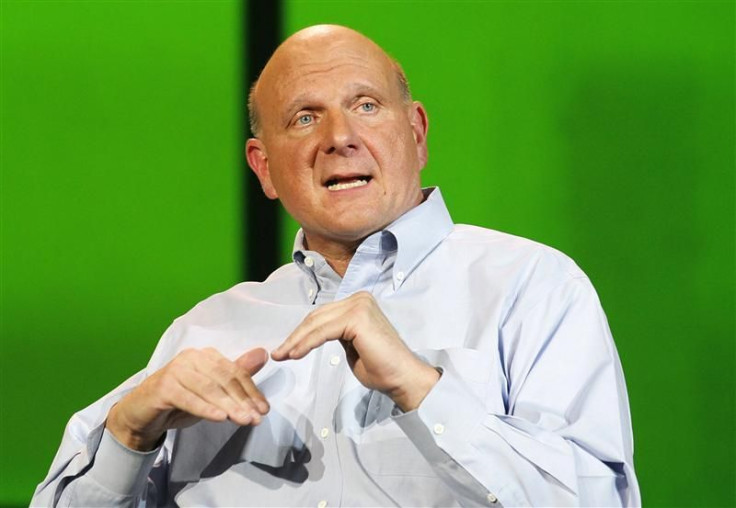Microsoft 3Q Earnings, Revenue Beat Forecasts

Microsoft (Nasdaq: MSFT), the world's biggest software company, reported results Thursday that beat analyst estimates for both earnings and revenue.
Third-quarter net income fell 2 percent from a year ago to $5.11 billion, or 60 cents a share, but beat analyst estimates of only 58 cents. Revenue rose 6 percent to $17.4 billion, about $300 million more than expected.
We're driving toward exciting launches across the entire company while delivering strong financial results, said CEO Steve Ballmer. Microsoft remains on tap to introduce Windows 8 later this year.
The software giant benefited from two trends in the market. Market researchers such as Gartner (NYSE: IT) have reported global PC shipments in the first quarter rose nearly 2 percent. And companies are shifting increasingly to so-called Big Data applications, which will require transporting ever-increasing amounts of traffic.
While Microsoft dominates the PC sector, upgrades and acquisitions of other software companies over the years, including Great Plains, Fast Search and Transfer and Videosurf, have upgraded its reach into the enterprise market.
Last year's $8.5 billion acquisition of Skype also moved it into the voice communications sector.
Here are some Microsoft key points.
Earnings match expectations? Usually, Microsoft reports results slightly above estimates, so a report above 58 cents a share, or $4.86 billion, wasn't unexpected. Earnings beat it by two cents. A revenue shortfall, below $17.16 billion, though, would have been a big surprise given market optimism.
What's the fourth-quarter forecast? Ballmer and CFO Peter Klein said the company is doing better than expected. Full year expenses for the period ending June 30 will be lower than estimated, so profits should rise between 6 percent and 8 percent, they said.
Ballmer and Klein are expected to brief investors Thursday night.
Besides discussing PC shipments and prospects for Big Data, Microsoft's top brass will likely mention more about Windows 8's formal release, timing and sales into the smartphone market, where Finland's Nokia (NYSE: NOK) is essentially betting the company on it to compete against the iPhone family from Apple (Nasdaq: AAPL), the world's most valuable technology company.
What about cash? Microsoft reported cash and investments exceeding $59.5 billion, or about $8 billion more than last quarter.
Microsoft could boost the dividend beyond the current 20 cents a share, which was boosted last year from 16 cents. Or, as happened in 2004, the company could declare a special dividend of $3 a share and also mount a huge buyback.
The company didn't announce any plans for the cash, so it's likely Ballmer and Klein will be asked about it later.
Chances are that such as giant step won't be taken, but conceivably Microsoft might eye some deals, such as selling its Bing search engine to Yahoo (Nasdaq: YHOO), for which it provides assistance, acquiring IP from distressed companies such as Research in Motion (Nasdaq: RIMM), which have said patents are for sale, or acquiring other companies outright.
Microsoft shares, which closed Thursday at $31.01, down 13 cents, have risen 19 percent in 2012 and 23 percent over the past 52 weeks. The company's market capitalization is $260 million.
© Copyright IBTimes 2025. All rights reserved.






















